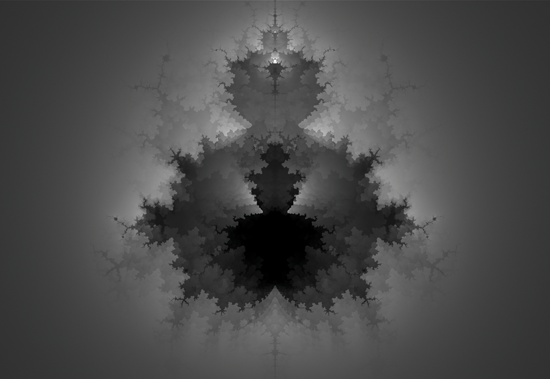Tricycle is offering free access to select articles during this uncertain time.
Your contribution helps make content like this possible.
Show your support for as little as $1.
Curtis White pulls no punches. To readers who see in Buddhism little room for spirited debate, White’s unapologetic bluntness may seem unexpected or even jarring. But for White—Distinguished Professor Emeritus of English at Illinois State University, novelist, and author of several works of criticism including the 2003 international bestseller The Middle Mind: Why Americans Don’t Think for Themselves—there is too much at stake in our current intellectual climate to indulge in timid discussion.
White’s latest book, The Science Delusion: Asking the Big Questions in a Culture of Easy Answers, strikes out at a nimble opponent, one frequently sighted yet so elusive it often seems to dodge just out of view: scientism. White identifies scientism as an unwarranted triumphalism based on unproven premises—such as the claim that science has got the world nailed down (or soon will, anyway), that the answer to all of our human problems lies in the discovery of natural laws, or that submitting to a scientific perspective is a choiceless imperative dictated by impersonal facts. To White, this attitude is not only wrongheaded, it is dangerous and wreaks social, cultural, and political damage.
The Science Delusion takes dual aim: at scientists and critics who proclaim themselves “enemies of religion” and at certain neuroscientists and thought leaders in the popular press whose neuro-enthusiasm, White thinks, is adding spin to the facts. What these science advocates share, he says, is both an ideology promoting the scientific worldview as the single valid understanding of human phenomena and also a set of assumptions, “many of which,” he writes, “are dubious if not outright deluded.” But for White, the debate over knowledge claims is a side skirmish. There is a more urgent battle to fight that becomes evident when he asks, “In whose interest do these science popularizers and provocateurs write? And to what end?”
White writes at a moment when the arts and humanities are struggling for survival on campuses across America as they are increasingly eclipsed by the “STEM” disciplines (science, technology, engineering, and math). In White’s view, what we are witnessing is a takeover, on the part of science, of the multiple narratives of what it means to be human—narratives that have flourished throughout Western history in religion, art, literature, and philosophy. Scientism comes with its own narrative, which White puts like this: “We are not ‘free’; we are chemical expressions of our DNA and our neurons. We cannot will anything, because our brains do our acting for us. We are like computers or systems, and so is nature.” When this is what we think we are, we become quiescent cogs readily manipulated by societal forces. In White’s view, once scientism rewrites our story so that the things human beings care about—like love, wonder, presence, or play—are reduced to atoms, genes, or neurons, human lives become easy prey to corporate and political interests. We become “mere functions within systems.” White wants us to wake up and recognize that this view is not scientific discovery, it is ideology. Mistaking one for the other has profound consequences, “not just for knowledge but even more importantly for how we live.”
Related: Shifting the Ground We Stand On: Buddhist Thinkers Challenge Modernity
Western Buddhists, engaged as we are in adapting an Asian religious tradition, generally agree that it is valuable to try to understand how Buddhism has been shaped by its host cultures in Asia. But shining that light of understanding on ourselves is a much more difficult proposition. It is hard to see what presumptions we bring to the project precisely because they are our own and not someone else’s. In striking hard at some of our most deeply ingrained assumptions, White brings them to our attention. Whether or not we agree with his critique isn’t the point. White isn’t looking for agreement. He wants to challenge our complacency, and in so doing, to shift the very framework within which we determine our agreements and disagreements.
–Linda Heuman, Contributing Editor

Your latest book is entitled The Science Delusion, which is clearly a response to the title of Richard Dawkins’s book The God Delusion. What is the science delusion, and what are its implications for living a spiritually meaningful life? There is no singular science delusion. One of the biggest challenges in writing a book that tries to question the role that science plays in our culture is being visible at all. So the title is a provocation, although an earnest one.
What I criticize is science as ideology, or scientism, for short. The problem with scientism is that it attempts to reduce every human matter to its own terms. So artistic creativity is merely a function of neurons and chemicals, religion is the result of the God gene, and faith is hardwired into our genetic makeup.
Not surprisingly, “spirit” is a forbidden word. Science writers tend to reduce believers to fundamentalists and the history of religion to a series of criminal anecdotes. Richard Dawkins is, and Christopher Hitchens was, particularly culpable in this regard. Any subtle consideration of the meaning of spirit is left out. But of course the history of religious thought is quite subtle, as anyone familiar with Buddhist philosophy knows well. Another good example is the legacy of Christian existential thinkers beginning with Kierkegaard: it seems to me shamefully dishonest not to acknowledge such work.

Both scientism and religious fundamentalism answer the human need for certainty in a rapidly shifting and disorientingly pluralistic world. To what extent are they in the same business? As your question suggests, the drama of the confrontation between religious fundamentalism and scientism is a confrontation between things that are more alike than they know. Both fundamentalism and scientism try to limit and close down, not open up. Science tends to be vulnerable to the “closed-in” syndrome. Scientists value curiosity, and they value open-mindedness, but they are often insensible to alternative ways of thinking about the world. It’s really difficult for them to get outside of their own worldview. This problem is probably created by the way in which we educate scientists. It seems to me scientists need to have a better background in history and the history of ideas, especially if prominent figures like Stephen Hawking are going to pass judgment on that history and say things like “Philosophy is dead.”
There is a common assumption that science is not a world-view but simply “the way things are.” Along with that assumption goes another: that science derives its authority from its privileged access to how things are—that it launches off from the bedrock of the Real. The odd thing here is that science itself tells us that it does not have a privileged access to things as they are, and that the philosophical paradoxes in its discoveries, especially in physics, are an open acknowledgment of its many uncertainties.
What we have now is this very uncomfortable joining of an ideological assumption that science is fact-based with the actual work of science, something that is highly speculative and whose reality is often only mathematical. For example, physics is deeply dependent on mathematical modeling, but no one knows why mathematics seems to be so revealing about reality. As the physicists Tony Rothman and George Sudarshan point out in Doubt and Certainty, the math equation of the Black-Scholes model used by stock traders is identical to the equation that shows how a particle moves through a liquid or gas. But, as they observe laconically, in the real world there is a difference between stocks and particle movement.
Even something as familiar as Newtonian equations are mathematical idealizations and, as Einstein showed, they are inadequate in important ways. And if Newtonian predictions about the movements of things as large as astral bodies are idealizations, what can be said about quanta or strings or the branes strings are said to attach to? These things are only numbers. They have no empirical presence at all.
“The drama of the confrontation between religious fundamentalism and scientism is a confrontation between things that are more alike than they know.”
Most Buddhists would have little argument with the statement in The Science Delusion that “the world is something we both find and invent.” How is this understanding at odds with scientism? Even now, after Heisenberg, after quantum physics, so much of the discourse of science in its public proclamations is focused on the establishment of knowledge as fact. This overlooks the paradoxical nature of scientific confirmation. Does confirmation mean positive knowledge of reality? Does it mean probability? Does it mean that something is useful? Newton’s equations have never stopped being useful, even though they have been superseded by general relativity.

Scientism is intolerant of the idea that the universe depends for its being on the participation of mind. Immanuel Kant’s Copernican Revolution was about this single fact: we have no simple access to the thing in itself. Any knowledge we have of reality is necessarily mediated by our own symbolic structures, whether they be math, philosophy, religion, or art. Even the theoretical physicist John Archibald Wheeler could say with conviction, “The universe does not exist ‘out there,’ independent of us. We are inescapably involved in bringing about that which appears to be happening.” Yet what we most often hear from scientism is “We scientists deal in knowledge of truth, and philosophers, artists, and religious believers don’t.” End of conversation.
Many assume that logic and reason lead away from religion. How can the systematic study of literature and art affirm religion? Our culture widely assumes that all reason is empirical reason: a logical development proceeding from an empirical fact. Similarly, we tend to assume that spirit concerns things that are supernatural. But this is not the only way to understand reason or spirit. The essence of the spiritual logic of Buddhism is contained in the four noble truths. There is suffering. Most of this suffering comes from self-interested desire enabled by delusion. This suffering can be stopped. The eightfold path shows how suffering can cease. This is not an appeal to the supernatural, but it is most certainly an appeal to spirit.
The ultimate religious question, the ultimate religious mystery, is not whether or not there is a God. I call myself an atheist because I think that question is silly, childish, and beside the point. The ultimate religious question is “What is compassion?” Or as Christianity puts it, “What is love?” Compassion is not a quality that can be demonstrated empirically. It is not a thing. It is something that we use flexibly. It speaks to a quality that we keep very close to us: the urgency of kindness. Compassion exists only to the extent that we invest it with the energy of our own lives—“altruism gene” be damned.
This sort of “theo-logic” also exists in the West. If there is a God principle in existential Christianity, it is in its confidence in the ultimacy of compassion. The Protestant theologian Paul Tillich argued that God is the object of our “ultimate concern.” When we are claimed by those concerns, we open ourselves to our true nature.
And art since Romanticism participates in a similar logic. Of course, the common assumption is that art is just imagination or entertainment or a waste of time. My point is that art thinks, and the history of art for the last two centuries shows that art thinks in very particular ways. Art has its own spiritual logic. It asks: How are we to transcend what Friedrich Schiller calls “the misery of culture,” meaning industrial culture in which man is “nothing but a fragment”? For Schiller and the Romantics, the multifold path of art is the way to accomplish the transcendence of this suffering. As Pablo Picasso wrote, “Painting is not made to decorate apartments. It is a weapon of offensive and defensive war against the enemy.” As Picasso’s Guernica or Goya’s The Third of May 1808 show, the “enemy” is cruelty.
Now, in any of these contexts, this is a perverse logic. If you had to judge the situation empirically, I don’t see how you could fail to conclude that the “preponderance of evidence,” as lawyers like to say, points to the idea that, as O’Brien says in Orwell’s 1984, the future is “a boot stamping on a human face—forever.” But Buddhism comes to the opposite conclusion. Our suffering is proof not of who we are—violent because of “human nature”—but of the fact that we are deluded, that we don’t know ourselves, and that if we are to end suffering we must, as Nietzsche says, become who we really are. It is the perversity of this logic that makes it spiritual because it is in no way supported by the facts on the ground. It’s like the story of the Jew who tells his Christian neighbor that he is going to Rome to see what Christianity is really like. The neighbor, of course, fears that once the man sees all of the corruption there he will not convert. But when his neighbor returns, he says, “Ah, my friend, yours is truly the greatest faith, otherwise it could not survive such cruelty and hypocrisy.”
The crucial thing to see in this process of thought is that it is a form of spiritual reason based in realism: our experience of how it is with the human world. True, it is not empirical reason driven by a notionally objective world, but neither are its conclusions dependent on supernaturalism or magical thinking. The idea that all human reason must be empirical is a story that is told to us by our masters.
“The idea that all human reason must be empirical is a story that is told to us by our masters.”
When critics speak of scientism as an ideology, many seem to be thinking of an ideology as a set of beliefs—like propositions you hold in your head. Your book gave me a sense that ideology, in particular scientism, is much more deeply rooted than that. I use the word ideology in the sense that Marx used it: the stories and ideas that we live out as members of a particular culture. Needless to say, there is a neutral sense in which every culture must have ideologies. The pejorative sense of the term comes from the idea that structures of power and privilege can and do manipulate and enforce these stories in order to support their own interests. The stories stop being concerned with the question “what is the best way for us to live together?” and start being about “what stories best support our own interests?” Telling stories that you want everyone to see themselves in, but that really favor only one group, requires dishonesty. So what I am concerned with is identifying those dishonest or false elements within the ideology delivered to us by science and its patrons.
Related: Brain Karma
Of course, the primary ideological story told by science is that it has no relation to ideology. But that’s what every ideology says. It says, “We are only concerned with the way things really are.” And so the science of economics tells us that self-interest is rational, that it is the essence of freedom, and that it may even be a part of our genetic makeup. These become the covering fictions for stupendous destruction and cruelty. As Buddhism argues, these ideas are not skillful. They are delusions, and they do great harm.
Neuroscience’s claim to be able to understand meditation in terms of the mechanics of neurons and chemicals is another example of ideological storytelling. You can have Buddhism, this story goes, as long as you are willing to acknowledge that it can be best understood through neuroscience. Buddhism is dangerous if it can’t be made to confirm our culture’s empiricist assumptions. If Buddhism refuses to confirm those assumptions, it is a counterculture and therefore a threat to the stability of the status quo. My feeling is that if we in the West are fated to misperceive Asian Buddhism, let it be a creative misperception in the spirit of Buddhism, and not merely the repetition of a familiar and oppressive ideology.

You’ve written that we don’t only have technology, we also have technocracy—which is run by corporatists, militarists, and self-serving politicians. You see a moral urgency to this situation, where many, including many Buddhists, are much more sanguine. It is a mistake to think that we just happen to have these toys and gadgets around without trying to understand what their relationship is to the larger culture. One of the first books that spoke to me powerfully as political theory was Theodore Roszak’s The Making of a Counter Culture (1968). I reread it recently, and it still holds up very well. He wrote, “By technocracy, I mean that social form in which an industrial society reaches the peak of its organizational integration.” Theodor Adorno called it “administered society.” An administered society is one in which technological rationality and industrial organization have penetrated deeply into every aspect of how we live.
For example, by bringing personal computers into our homes, we also brought our workstations into our homes. And so, who knows how many hours a week you work? In a sense, many workers are never not at work, because now they carry their job in their pocket. Or consider service workers in the fast food industry. These workers are treated not as humans but as a part of a superefficient machine, and the skills required of them are crudely mechanical as well.
The more normalized all of this becomes, the more oppressive—and, needless to say, perversely successful—it is. The result is a culture that is “totalized.” Every aspect of the culture is made conformable to a certain technocratic and mechanistic ideal. That’s why I say that scientism is such an important part of state ideology. It is doing work for the boss.
How? Simply by normalizing the idea that everything is a machine, especially us. We are not likely to make a Thoreauvian or a Buddhist critique of technocracy if we have been convinced that we are computers. Thoreauvian critiques are disruptive and disobedient, and technocracy would prefer that we not think in that way. Ultimately, we are arguing about what it means to be human.
For the moment, the idea that we are neural computers is in ascendancy. Currently, from a very early age our children are given to understand that if they want a decent standard of living, they’re going to have to make their peace (ideally, an enthusiastic peace) with Science, Technology, Engineering, and Math, or STEM. Universities are now in the business of training people to go out into a world that is understood to be one vast mechanism, and this includes nature or, as we now say, “the ecosystem.” But that’s okay because we’re computers too. I can’t emphasize enough how oppressive this feels to many young people. As one reviewer of my book wrote, rather bitterly, “Anyone who doesn’t want to be a graphic designer, or a techie, or a slavish Apple devotee—no jobs for you!” And, I’ll add, no way to pay off your huge student loans.
Anyone who doubts the seriousness of this vision should read David Brooks’s December 2013 column for The New York Times “Thinking for the Future,” in which he predicts that the economy of the future will depend upon “mechanized intelligence.” Fifteen percent of the working population will make up a mandarin class of computer geeks and the “bottom 85%” will serve them as “greeters” or by doing things like running food trucks. And yet, Brooks claims, this vast class of servants will have “rich lives” that will be provided for them by the “free bounty of the Internet.”
In your own Thoreauvian article “The Spirit of Disobedience: An Invitation to Resistance,” you quoted Simone Weil: “The authentic and pure values—truth, beauty, and goodness—in the activity of a human being are the result of one and the same act, a certain application of the full attention to the object.” In light of this perspective, what are your thoughts about the introduction of meditation into education and industry, especially into the “creative industries” of Silicon Valley? Thoreau and Weil were writers coming out of the Romantic tradition. For me, the Romantic movement was an attempt to create a wisdom literature for the West. A good part of that wisdom had to do with returning us to the immediacy of the world. As a poetic technique this has come to be known as “defamiliarization.” What it attempts to do is to destroy the world of custom, habit, stereotype, and ideology so that we can see things for what they are, so that we can see and feel the “stone’s stoniness.” When Walt Whitman says that his poetry is about “leaves of grass,” he is essentially saying, We have not been attentive. We need to look again at this leaf of grass. He wrote, “Bring all the art and science of the world, and baffle and humble it with one spear of grass.”
Perhaps the saddest thing we can say about our culture is that it is a culture of distraction. “Attention deficit” is a cultural disorder, a debasement of spirit, before it is an ailment in our children to be treated with Ritalin.
As for Silicon Valley, it has a legitimate interest in the health of its workers, but it has little interest in Weil’s notion of “the authentic and pure values.” Its primary aim is to bring Buddhist meditation techniques (as neuroscience understands them) to the aid of corporate culture, such as in the Search Inside Yourself program developed at Google. This is from the Search Inside Yourself Leadership Institute website:
Developed at Google and based on the latest in neuroscience research, our programs offer attention and mindfulness training that build the core emotional intelligence skills needed for peak performance and effective leadership. We help professionals at all levels adapt, management teams evolve, and leaders optimize their impact and influence.
Mindfulness is enabling corporations to “optimize impact”? In this view of things, mindfulness can be extracted from a context of Buddhist meanings, values, and purposes. Meditation and mindfulness are not part of a whole way of life but only a spiritual technology, a mental app that is the same regardless of how it is used and what it is used for. It is as if we were trying to create a Buddhism based on the careful maintenance of a delusion, a science delusion. It reminds me of the Babylonian captivity in the Hebrew Bible, but now the question for Buddhists is whether or not we can exist in technological exile and still remain a “faithful remnant.”
Bringing Buddhist meditation techniques into industry accomplishes two things for industry. It does actually give companies like Google something useful for an employee’s well-being, but it also neutralizes a potentially disruptive adversary. Buddhism has its own orienting perspectives, attitudes, and values, as does American corporate culture. And not only are they very different from each other, they are also often fundamentally opposed to each other.
A benign way to think about this is that once people experience the benefits of mindfulness they will become interested in the dharma and develop a truer appreciation for Buddhism—and that would be fine. But the problem is that neither Buddhists nor employees are in control of how this will play out. Industry is in control. This is how ideology works. It takes something that has the capacity to be oppositional, like Buddhism, and it redefines it. And somewhere down the line, we forget that it ever had its own meaning.
It’s not that any one active ideology accomplishes all that needs to be done; rather, it is the constant repetition of certain themes and ideas that tend to construct a kind of “nature.” Ideology functions by saying “this is nature”—this is the way things are; this is the way the world is. So, Obama talks about STEM, scientists talk about the human computer, universities talk about “workforce preparation,” and industry talks about the benefits of the neuroscience of meditation, but it all becomes something that feels like a consistent world, and after a while we lose the ability to look at it skeptically. At that point we no longer bother to ask to be treated humanly. At that point we accept our fate as mere functions. Ideology’s job is to make people believe that their prison is a pleasure dome.
Thank you for subscribing to Tricycle! As a nonprofit, we depend on readers like you to keep Buddhist teachings and practices widely available.

